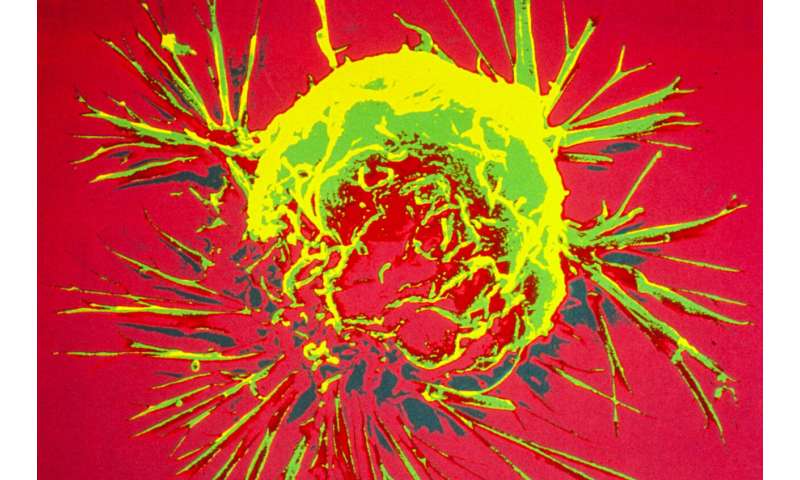
A key hurdle in treating breast cancers is intratumoral heterogeneity, or the presence of multiple different cell populations within the same tumor that have distinct characteristics such as gene expression, metabolism and ability to divide, spread and grow. These cells can also respond with varying levels of sensitivity to standard therapies, and ultimately, are a contributing factor to therapeutic resistance.
A team of researchers led by Dartmouth’s and Dartmouth-Hitchcock’s Norris Cotton Cancer Center have a new understanding of how tumor heterogeneity arises and how it can be curtailed to render tumors less metastatic and more sensitive to therapy. The team identified that the mammary basal cell lineage contributes to breast cancer heterogeneity, fueling the outgrowth of multiple aggressive tumor subpopulations.
“Through the activation of a signaling pathway driven by protein kinase A (PKA), we are able to limit the self-renewal potential of basal cells, which impedes the outgrowth of metastatic, therapy-resistant tumor cell subpopulations,” says Principal Investigator and cancer biologist Diwakar Pattabiraman, Ph.D., who is also the corresponding author of the study.
The team’s findings, “Limiting Self-Renewal of the Basal Compartment by PKA Activation Induces Differentiation and Alters the Evolution of Mammary Tumors,” are newly published in Developmental Cell.
Source: Read Full Article
